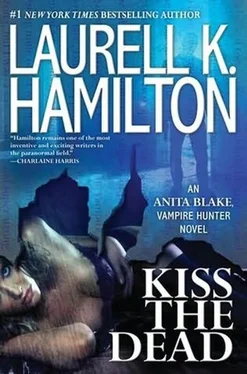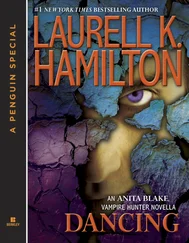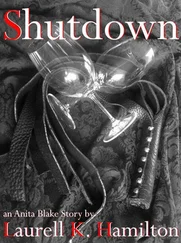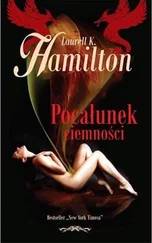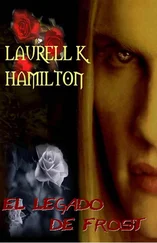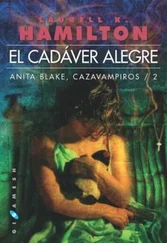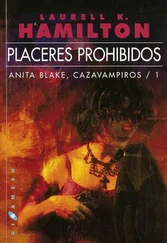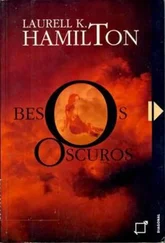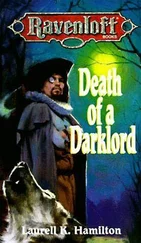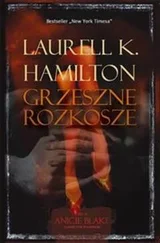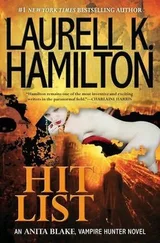Laurell Hamilton - Kiss The Dead
Здесь есть возможность читать онлайн «Laurell Hamilton - Kiss The Dead» весь текст электронной книги совершенно бесплатно (целиком полную версию без сокращений). В некоторых случаях можно слушать аудио, скачать через торрент в формате fb2 и присутствует краткое содержание. Жанр: Фэнтези, на английском языке. Описание произведения, (предисловие) а так же отзывы посетителей доступны на портале библиотеки ЛибКат.
- Название:Kiss The Dead
- Автор:
- Жанр:
- Год:неизвестен
- ISBN:нет данных
- Рейтинг книги:3 / 5. Голосов: 1
-
Избранное:Добавить в избранное
- Отзывы:
-
Ваша оценка:
- 60
- 1
- 2
- 3
- 4
- 5
Kiss The Dead: краткое содержание, описание и аннотация
Предлагаем к чтению аннотацию, описание, краткое содержание или предисловие (зависит от того, что написал сам автор книги «Kiss The Dead»). Если вы не нашли необходимую информацию о книге — напишите в комментариях, мы постараемся отыскать её.
Kiss The Dead — читать онлайн бесплатно полную книгу (весь текст) целиком
Ниже представлен текст книги, разбитый по страницам. Система сохранения места последней прочитанной страницы, позволяет с удобством читать онлайн бесплатно книгу «Kiss The Dead», без необходимости каждый раз заново искать на чём Вы остановились. Поставьте закладку, и сможете в любой момент перейти на страницу, на которой закончили чтение.
Интервал:
Закладка:
2
POLICE OFFICERS GO radio silent for a lot of reasons, including equipment failure. It doesn’t automatically get SWAT called out, or anything much except more officers dispatched to the scene to check on things, unless preternatural citizens are involved. Words like vampire , werewolf , wereleopard , zombie , et cetera, can be an automatic rollout for our special teams. Unless they’re already busy elsewhere with a genuine situation, not just a maybe one. Some of them were with my fellow U.S. Marshal Larry Kirkland delivering a warrant of execution on a vampire that had moved into our town with a live warrant from another state. He’d killed the last Marshal who tried to “serve” the warrant, so the warrant had been electronically transferred to the Marshal who was next up in the rotation here, which made it Larry’s warrant. A warrant of execution was always considered a no-knock warrant, which meant we didn’t have to announce ourselves before coming through the door. I’d started Larry’s training, but the FBI had finished it; he was all grown up now, married with a kid, and I’d learned to ignore the tight feeling in my gut when he went off on his own into something dangerous. There was also a more routine warrant on drug dealers, suspected of a string of deaths, so SWAT was going in with that one, too. St. Louis is a smaller city; our SWAT had enough men to field one more team, but we wouldn’t get it until we had proof something bad had happened. Until then it was just the officers originally dispatched to the scene and us, RPIT. Frankly, I preferred it that way sometimes. Too many rules with SWAT.
The night was strobed with blue and red lights as Zerbrowski and I pulled up. There were no sirens, just the lights. In the movies there’s noise to go with the lights, but sometimes like now, when you get out of the cars, it’s quiet, just the colored lights swirling over and over the huge brick buildings and empty brick courtyard. In the 1800s the brewery had been one of the major employers in the city, but it had been abandoned for years. Someone had bought it and was trying to convince people it could be condos and office space, but mostly it rented out for photo and video shoots. The two police cars looked empty. Where were the cops who went with them, and why weren’t they answering their radios?
Detectives Clive Perry and Brody Smith got out of their car. Perry was tall, slender, neatly but conservatively dressed. He was African American, but his skin wasn’t as dark as the colored lights made it seem; Smith was a natural blond, and he looked paler as the lights painted him blue and red. Perry was almost six feet, Smith not much taller than me. Perry was also built like a long-distance runner, all height and slender frame; Smith’s shoulders were broad and he was built like someone who’d muscle up if he ever hit the gym enough. Smith’s white shirt was open at the collar, no tie, and his jackets always fit wrong through his shoulders, as if he had trouble finding suits that fit them and were still short enough for his height. They say opposites attract, or at least work well together, and Perry and Smith did. Perry was the normal one of the pairing, and Smith the supernormal-which sounded better than psychic , or witch . Smith was part of an experimental program that St. Louis was trying in which cops with some psychic ability were trained up so they could use their talents for more than just following their gut. What had surprised the top brass had been how many cops were psychic, but it hadn’t surprised me. Most cops talk about their gut feelings, instinct, and most of them will tell you it’s kept them and their partners alive. When tested, it turned out most of the “gut instinct” was latent psychic ability. Smith could sense the monsters once they used some sort of ability. When a lycanthropy suspect started to shapeshift, Smith would sense it and warn everyone, or warn the suspect not to do it. He could sense vampires once they went all vampire-wiles on your ass. He was better with the furry than the undead. He could sense when someone was using certain psychic abilities, like when I searched for the undead. As psychics went, Smith was pretty mild, or they hadn’t found his true ability. It was sort of a wait and see.
Zerbrowski and I weren’t officially partners. U.S. Marshals didn’t usually have official partners, and Preternatural Branch, never. But I’d probably worked with Zerbrowski more than any other single cop over the years. We knew each other. I’d been invited over to his house for dinners with his wife and kids, and last cookout he’d let me bring my two wereleopard live-in sweeties. Two men who were “monsters,” and I was living in sin with both of them, and he let me bring them to his house with his family and a bunch of other cops and their families; yeah, Zerbrowski and I were friends. We might never confide our deepest darkest secrets in each other, but we were cop-friends. It’s like work-friends, but you get each other’s blood on you, and keep each other alive. But when I went out with RPIT they did try to pair me with normals. Zerbrowski had gut instinct, but not enough to score on the tests.
We checked the two cars, found them empty, and I just said it: “We have to assume that the officers are hurt, so I’m invoking.” Invoking the Preternatural Endangerment Act, that is; it was a loophole in the new, more vampire-friendly laws that allowed Marshals of the Preternatural Branch to use lethal force if they thought human lives were endangered and would be lost waiting for a warrant of execution. At least two officers missing from their cars, maybe more if either ride had two officers apiece, they were either hurt or dead, and there was still the missing girl. If we wanted anyone left alive, we needed to be able to shoot the vampires.
“You’re not supposed to invoke until we know for sure someone’s hurt, or there’s a hostage situation,” Perry said. He was all about the rules, our Clive.
“We have to assume the officers are hurt, or worse, Clive,” Zerbrowski said. “Anita’s within her rights to invoke the Preternatural Endangerment Act, which means she, and anyone with her, can use lethal force to save human lives without waiting for a warrant of execution.” Zerbrowski was the highest-ranking officer on site, and he was backing me. Clive did what the rule-lovers do, he followed the rules. Later he could tell himself he’d tried to prevent the bloodshed, but he was technically clean on it. He nodded, and said, “You’re in charge, Sergeant.”
Zerbrowski let it go at that, and turned to me. “Sic ’em, Anita.”
I raised an eyebrow at the phrasing, but let it go. His grin was enough; he’d make a joke with his last breath, and after a while you had to let the smart-ass remarks go, or he wore you down.
“Give me a minute,” I said. If we’d been trying to sneak up on the vampires I couldn’t have searched for them using my necromancy because they might sense the power, and then they’d know we were coming, but with the marked police cars, it wasn’t like we were hiding.
In the interrogation room it had been an accident, a little power leaking out, and only after that on purpose. There was nothing accidental about this. Most people who raise the dead-animators if you’re being polite, zombie queens or kings if you’re being rude-have to do ritual to raise the dead. They need a circle of power, ointment, ritual tools, a blood sacrifice, and even then, they’re lucky to raise one zombie a night. I used a circle of power to keep wandering bad powers out of my zombies, and the blood sacrifice just meant I could raise more and better zombies, but with nothing but my power I could raise the dead. If I used all the accoutrements of the profession I could raise cemeteries. I’d kept that part to myself as much as possible, because no one, absolutely no one, should be able to do that-not even me.
Читать дальшеИнтервал:
Закладка:
Похожие книги на «Kiss The Dead»
Представляем Вашему вниманию похожие книги на «Kiss The Dead» списком для выбора. Мы отобрали схожую по названию и смыслу литературу в надежде предоставить читателям больше вариантов отыскать новые, интересные, ещё непрочитанные произведения.
Обсуждение, отзывы о книге «Kiss The Dead» и просто собственные мнения читателей. Оставьте ваши комментарии, напишите, что Вы думаете о произведении, его смысле или главных героях. Укажите что конкретно понравилось, а что нет, и почему Вы так считаете.
